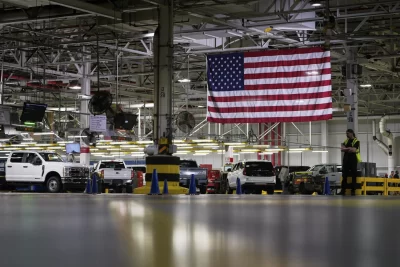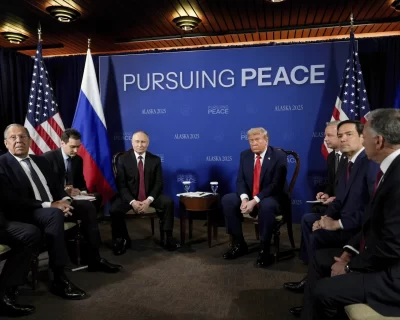
Stocks around the world swung on Tuesday, oil prices rose sharply and the price of nickel surged so much that trading for it was shut in London, as the economic fallout from Russia’s invasion of Ukraine keeps rocking markets.
The S&P 500 was virtually flat in early trading after swinging between gains and losses, as gains for ExxonMobil and other oil companies benefiting from higher crude prices weighed against losses elsewhere.
The Nasdaq composite was 0.1% lower in its first trading after it fell more than 20% below its record high, and the Dow Jones Industrial Average was up 34 points, or 0.1%, at 32,852, as of 9:53 a.m. Eastern time.
At the center of Wall Street’s wild recent swings has been the price of oil, which has surged on worries global supplies will be upended because Russia is one of the world’s largest producers. President Joe Biden has decided to ban imports of Russian oil, and a barrel of U.S. oil rose 6.4% to $126.91 in morning trading. It got even higher a day before as worries rose about a possible ban, reaching $130.50.
Brent crude, the international standard, rose 5.4% to $129.84, a day after briefly topping $139.
Biden may announce the move as soon as Tuesday. The U.S. will be acting alone, but in close consultation with European allies, who are more dependent on Russian energy supplies. European nations have said they plan to reduce their reliance on Russia for their energy needs, but filling the void without crippling their economies will likely take some time.
A U.S. ban on Russian oil imports would be the latest move by governments and companies around the world to squeeze Russia’s finances following its attack of Ukraine. All the penalties raise questions about how high prices will go for oil, natural gas, wheat and other commodities where the region is a major producer. That’s in turn adding more pressure onto the already high inflation sweeping the world, cranking up its hold on the global economy.
The worry now is that conditions are mixing in a toxic cocktail to push up inflation and pull down the economy. It’s making an already difficult path for the Federal Reserve and other central banks around the world even more treacherous. They’ve been hoping to raise interest rates enough to push down high inflation, but not so much as to cause a recession.
The wild trading has stretched across markets for commodities, where challenges for supplies are colliding with strengthening demand as the global economy comes back from its coronavirus-cuased shutdown.
Trading in nickel, much of which is produced in Russia, was suspended Tuesday on the London Metal Exchange after prices doubled to an unprecedented $100,000 per metric ton.
Nickel is used mostly to produce stainless steel and some alloys, but increasingly it is used in batteries, particularly electric vehicle batteries.
Russia, facing severe economic sanctions after invading Ukraine, is the world’s third biggest nickel producer. And the Russian mining company Nornickel is a major supplier of the high-grade nickel that is used in electric vehicles.
Nickel prices had quadrupled in a week over supply issues and the spike Tuesday forced the LME to shut down electronic and open-outcry, or floor trading.
Trading in nickel will not resume Tuesday and the halt could last longer than that “given the geopolitical situation which underlies recent price moves,” the LME said Tuesday.
In Asia, most stock indexes fell, with Japan’s Nikkei 225 down 1.7%. European stocks swung from early losses to gains, and the French CAC 40 was recently up 0.4%.
The price of gold — a measure of nervousness on Wall Street — rose 2% to $2,036.40 per ounce.







